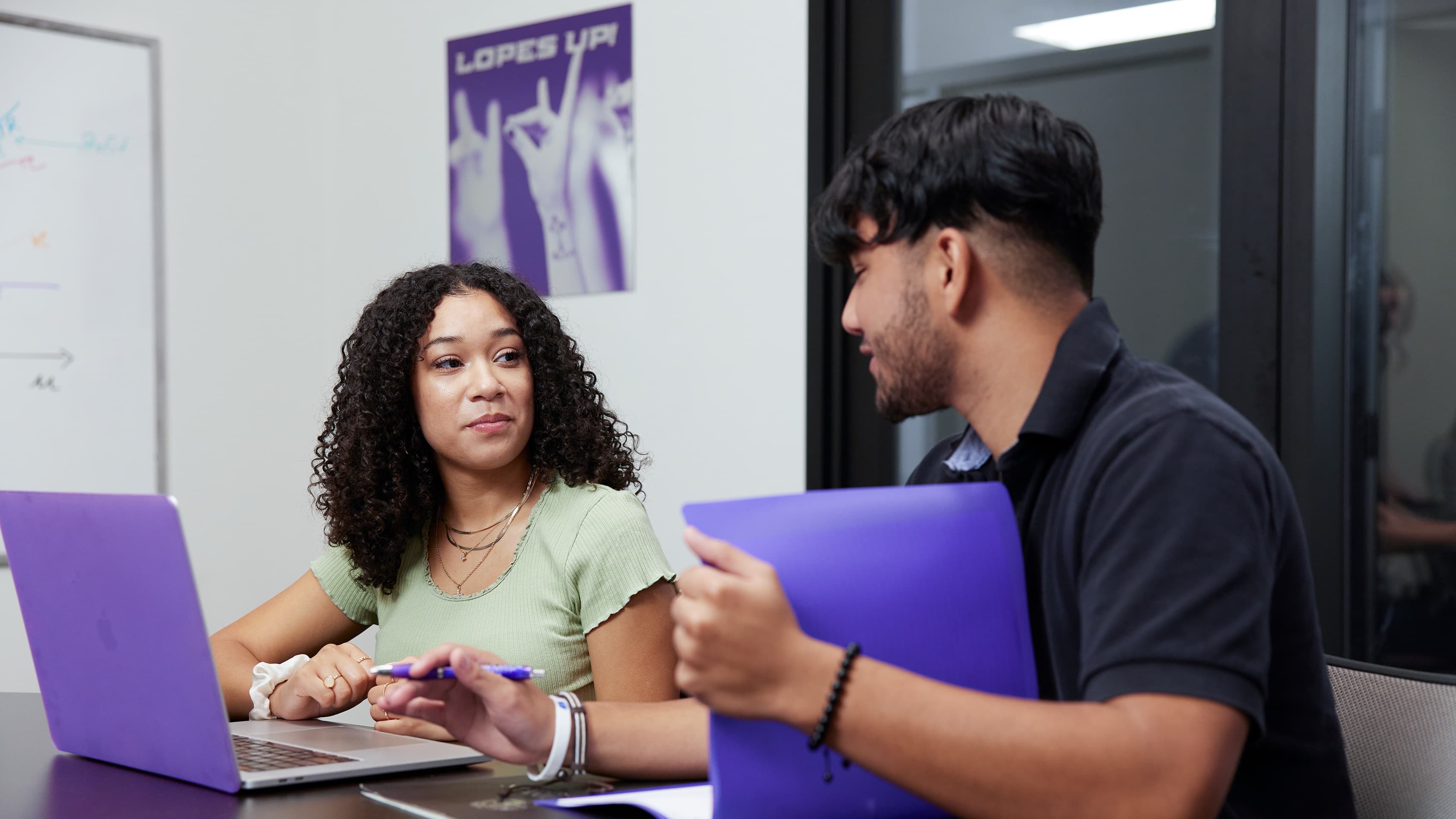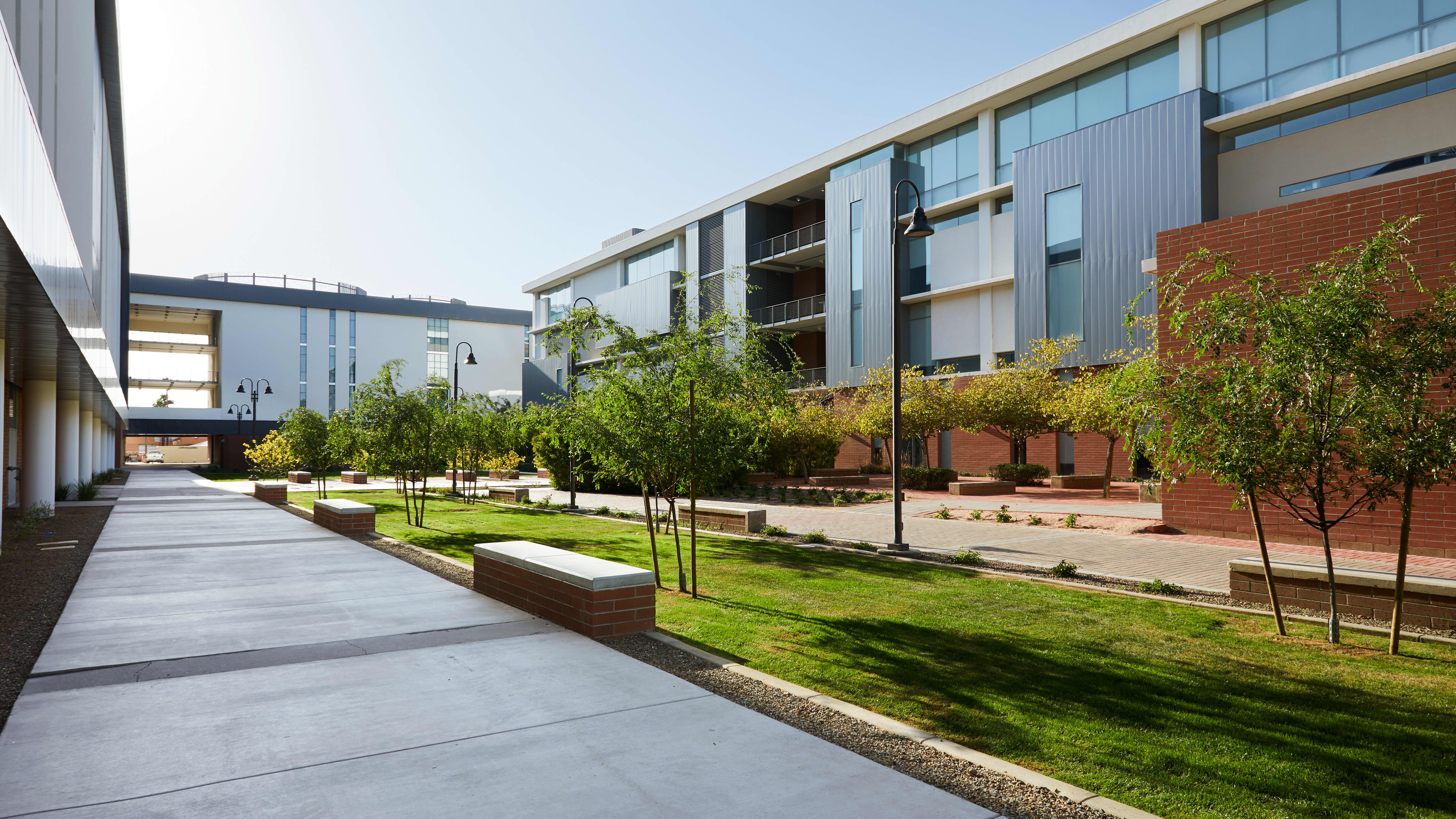GCU’s College of Natural Sciences Rankings
What Our Students Are Saying - Testimonials
Delve into the authentic experiences of our students as they share their journeys through the College of Natural Sciences at Grand Canyon University. Insightful testimonials can provide firsthand accounts of the enriching educational environment, valuable opportunities and impactful learning encounters within our college.
At GCU I felt like I wasn’t just learning so I could pass a class. I was learning because I was passionate about it. And that was largely due to the instructors who were teaching.
Loading Form
Key Factors of the College of Natural Sciences
GCU's mission emphasizes the availability of hands-on labs, clubs and science-focused Research and Design Programs (RDPs), as your experiences are a central pillar of our approach to help shape you into a pioneering and enterprising graduate. In GCU’s science programs, teaching is integral — the College of Natural Sciences at GCU doesn't house traditional research professors within its physical confines. Instead, faculty prioritize teaching, even within the context of their research. Research programs like the RDPs are primarily designed to offer you a valuable, mentored experience.
The College of Natural Sciences faculty leverage their expertise and skills within their respective domains to deliver effective teaching, with less focus on their research achievements. Professors offer readily available office hours, dedicated to aiding your comprehension of the subject matter and imparting insights to aspiring scientists, clinicians and practitioners. You are encouraged to visit faculty early and often, as the relationship between you and your faculty has the greatest chance of significantly influencing your progress in the classroom, in your program and in your career.
The pre-medicine advisor is very helpful; she gave me good advice on applying to medical school and was very reassuring. It's good to hear that somebody's trying to help you and they want to see you be successful.

Student Support and Opportunity
College of Natural Sciences faculty make themselves available outside of class to help you understand the content being taught and to provide career and graduate school guidance. GCU faculty is focused on helping you grow as a scientist and to earn the professional recommendations that may be necessary for many graduate schools.
The amount of time GCU professors devote to office hours is helpful and all the material is relevant to the class and real life, so they set you up for success.
Within the College of Natural Sciences, GCU offers a diverse array of events, clubs and activities that can spotlight science, emphasizing hands-on learning and the exploration of sought-after STEM careers. These opportunities are further enriched by GCU's facilities and campus clubs dedicated to promoting STEM engagement.
Professors are very helpful at GCU, I think the main reason being the class size. You never have 400 people in one class.

Professor Awarded Funding for Undergraduate Research Proposal
College of Natural Sciences professor, Dr. Ramesh Velupillaimani, has secured a $6,000 award from the Western Alliance to Expand Student Opportunities (WAESO) for his undergraduate research project titled “Novel Antimicrobial and Pharmacological Products from Higher Plants, Algae, and Mushrooms.” This funding, awarded for the Fall 2024 semester, will provide a $1,000 stipend to each of his students who participate in the project.
GCU professor in the College of Natural Sciences, Dr. Daisy Savarirajan, was elected a Fellow of the American Scientific Affiliation (ASA) in recognition of her stature in the scientific community. She is recognized for her contributions to issues of science and Christian faith, as well as her support of the ASA. Dr. Savarirajan is an accomplished scientist and educator who has effectively bridged the gap between Christianity and the scientific field, inspiring her students and earning recognition from her peers.
GCU faculty member Zachary Ziegler published a manuscript titled “Impact of Wildland Firefighting on Arterial Stiffness and Cardiorespiratory Fitness” in the journal “Archives of Environmental and Occupational Health” in May 2021. His co-authors include three former GCU students: Joe Sol, Payton Greer, now a student in the AT Still University Physical Therapy Program and Laura Verduzco, now enrolled in the ASU Master of Science in Physical Activity and Health program.1
1 Retrieved from Taylor & Francis Online, Impact of wildland firefighting on arterial stiffness and cardiorespiratory fitness in May 2021
